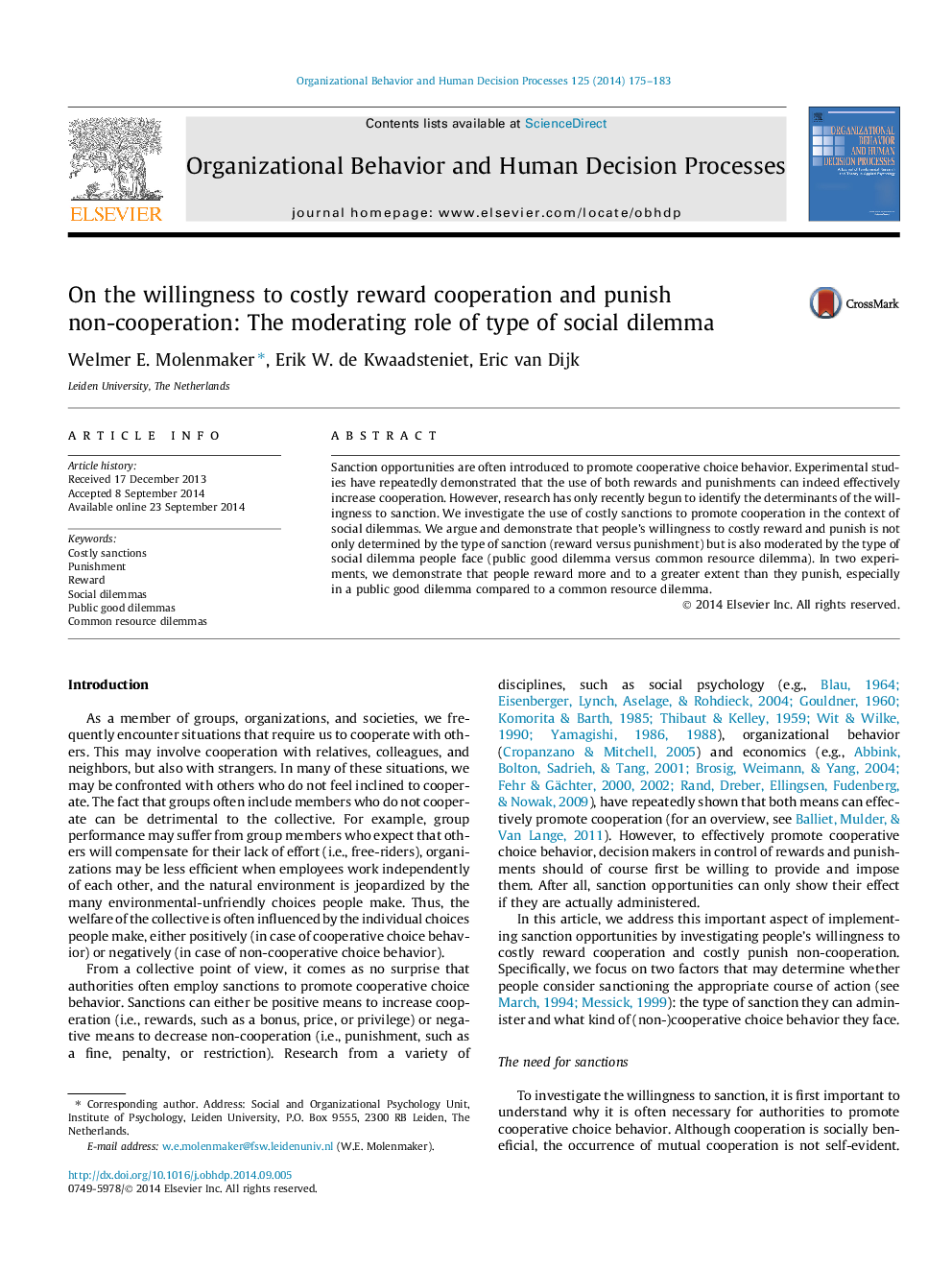| Article ID | Journal | Published Year | Pages | File Type |
|---|---|---|---|---|
| 888540 | Organizational Behavior and Human Decision Processes | 2014 | 9 Pages |
•This paper focuses on the willingness to reward and punish (non-)cooperation.•We predict that costly sanctioning is moderated by the type of social dilemma.•Our findings show that people have a preference for reward over punishment.•People reward more in public good dilemmas than in common resource dilemmas.•People punish less in public good dilemmas than in common resource dilemmas.
Sanction opportunities are often introduced to promote cooperative choice behavior. Experimental studies have repeatedly demonstrated that the use of both rewards and punishments can indeed effectively increase cooperation. However, research has only recently begun to identify the determinants of the willingness to sanction. We investigate the use of costly sanctions to promote cooperation in the context of social dilemmas. We argue and demonstrate that people’s willingness to costly reward and punish is not only determined by the type of sanction (reward versus punishment) but is also moderated by the type of social dilemma people face (public good dilemma versus common resource dilemma). In two experiments, we demonstrate that people reward more and to a greater extent than they punish, especially in a public good dilemma compared to a common resource dilemma.
